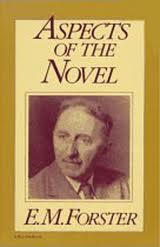The George Saunders First-Person Pharmaceutical Diction Shift
Will Wilkinson
Sep 14, 2013
George Saunders does this thing where he give characters drugs to make them talk fancy. Two stories in Saunders' latest collection,
The Tenth of December, use this trick. In "Escape from Spiderhead" inmates in a penal facility are exploited for pharmaceutical testing. They are burdened with something Saunders calls a "MobiPak™"--one imagines something like a surgically-attached, next-gen, remote-controlled, thirty-one-flavors insulin pump. Certain drugs are deployed to punish and control the prisoners. Others enhance the quality of the prisoners' verbal accounts of their experiences under the influence of the drugs under active investigation at the research clink. One such drug, Verbaluce™, bestows upon users not only unusual powers of incisive perception but also grandiloquence and literary diction. Here's "Spiderhead"'s narrator, Jeff, describing and exemplifying the powers of Verbaluce™, and illustrating the Saunders first-person pharmaceutical diction shift:
He added some Verbaluce™ to the drip and soon I was feeling the same things but saying them better. The garden still looked nice. It was like the bushes were so tight-seeming and the sun made everything stand out? It was like any moment you expected some Victorians to wander in with their cups of tea. It was as if the garden had become a sort of embodiment of the domestic dreams forever intrinsic to human consciousness. It was as if I could suddenly discern, in this contemporary vignette, the ancient corollary through which Plato and some of his contemporaries might have strolled; to wit, I was sensing the eternal in the ephemeral.
Nice, right? And here's the end of the comedown:
Then whatever else was in the drip wore off, and I didn't feel much one way or the other. My mouth was dry, though, and my gut had that post-Verbaluce™ feel to it.
You know. That post-Verbaluce™ feel. Ugh! Oh, you don't know it? Well, Jeff could describe it if he were on Verbaluce™, but then he wouldn't feel it. Wait! Hey! What's going on here!? Who is the narrator of this story? It's Jeff! Was Jeff on Verbaluce™ when he so eloquently related to us the experience of Verbalucidity? Jeff gives us every indication that Verbaluce™-induced lexical engorgement does not outlast the dose. Maybe it does when recalling a Verbaluce trip? Like, there are certain words Jeff doesn't know when he's not on Verbaluce™, but then he does know them when he's remembering being on Verbaluce™, but only then? No. This is batshit.

Maybe I'm thinking too hard about it. Okay. I'm thinking too hard about it. Now that I've thought too hard about it, though, it bugs me a little. A lot. But I've come to terms with it, at least in "Spiderhead."
Let me say that I didn't
at all detect a logical difficulty with the first-person pharmaceutical diction shift when I first "read" this story. I think that's because on my first go I listened to Saunders himself reading it in the audio-book version that I managed somehow to "borrow" from the Houston Public Library. Hearing the story read aloud reinforced my sense that the first-person retrospective narrative mode generally involves the narrator telling his story to us, the audience, as if he'd taken the stage at The Moth or something. Jeff is addressing us. He's voicing his tale in the past tense, because it all happened in the past, and we're listening with interest to what happened. Saunders reading the story is Saunders acting out Jeff's telling of it.
At the same time, Saunders literal voice coming through the earbuds draws to the fore the presence of the "implied author" behind the narrator. Here he is, reading the story he contrived, a very, very sweet-sounding man. And this complicates one's sense of the source of the narration. The
real narrator would seem to be sweet, clever Saunders, not so much Jeff.
"Victory Lap," the first story in Saunders' collection, is a dazzling
tour de force of Flaubertian "free indirect" third-person narration. The self-effacing narrator goes pretty well whole hog when it comes to getting out of the way and relating the story through the voice--through the personality and diction--of his point-of-view characters. "I do this thing that I call third-person ventriloquist,"
Saunders says, "It's kind of a standard third-person voice at first, and then, as quickly as I can, I try to get into the person's thoughts, but then with the extra kicker of trying to use [or] restrict myself to his or her diction." Saunders seems pretty proud of this, and he ought to be. In this context, and especially when one listens to Saunders himself reading it, "Escape from Spiderhead," comes across as a further frontier in innovative third-person narrative self-effacement. The third-person narrator is
so hidden, he emerges only the ventriloquize Jeff's Verbaluce™ voice, which, logically, Jeff could not faithfully reproduce from memory.
One's sense that the narrative mode of Spiderhead is the furtive third-person is strongly reinforced when Jeff at the end [SPOILER ALERT] seems to narrate his own death. Having flagrantly violated the "and I only am escaped alone to tell thee" principle, the story ultimately proposes another, suppressed, third-personal teller. Or maybe it's Jeff's ghost. Philosophers are divided on the vexed question of whether our ghosts are us.
So, okay. It's cool, Saunders. You did it, you brilliant bastard. In fact, it's more than cool. I like this story all the more for having wandered with it into the wilderness of over-thinking. But!
But!
But then one is confronted with the irremediable incoherence of "My Chivalric Fiasco," the penultimate tale in Saunders' collection.
Ted works at a Saundersian Ren Faire theme park (oh, late capitalism!) and has been promoted from janitor to "Pacing Guard," a coveted speaking and "medicated" role. On his first night as Pacing Guard, Ted is administered 100 milligrams of KnightLyfe®, which makes him think and talk like the valorous hero of a Sir Walter Scott romance. Here's a bit of Ted's lower-register default voice:
I could feel Martha looking at me, like: Ted, I'm in your hands here. I figured it was her call. Based on my experience of life, which I have not exactly hit out of the park, I tend to agree with that this about, If it's not broke, don't fix it. ...
Classic Saunders.
Somewhere Saunders says:
What I found was, if I keep with the diction I know--which is working class--and the experience I know, which is middle-class American, then, in a funny way, the language is more original than if I tried to be more conventionally literary.
I think he's right. And nobody does this sort of vernacular diction--the "based on my experience, which I have not exactly hit out of the park" thing--better.
Okay. Now here's Ted's pharmaceutical diction shift:
Just then the KnightLyfe® kicked in. My mouth went dry. I felt it was nice of Kyle not to give me shit about my mess-up. It occurred to me that I really liked Kyle. A comrade. Noble comrade. I felt we had weathered many storms together. It seemed, for example, that we had, at some point, in some far-distant land, huddled together at the base of a castle wall, hot tar roiling down, and there shared a rueful laugh, as if to say: It is all but brief, so let us live. And then: What ho! Had charged up crude ladders, with many imprecations, although I could not recall the exact imprecations, nor the outcome of said Charge.
Short story shorter [SPOILER ALERT], Ted, giddy on the "What ho!" chivalry of KnightLyfe®, rashly defends Martha's honor and loses his job, imperiling his entire family. We end inconclusively with Ted coming down, staring at a creek, narrating like Ivanhoe in a Chekhov story:
I took me to the Banks of the River, and tarried there awhile, as the lowering Sun made one with the Water, giving generously of Itself & its Divers Colors, in a Splay of Magnificence that preceded a most wonderful Silence.
It's interesting that Saunders chose to end both "Spiderhead" and "Fiasco" with high-toned drug-induced diction. This allows Saunders to participate in the venerable convention of numinous lyrical closure while simultaneously spoofing its artificiality. You'd have to be high on language to end a story this way, Saunders seems to say. But of course, the lyrical finish is damn satisfying, even if the author's winking at it. A really smart trick. Those MacArthur people are sometimes right. Still, a trick! The second time in a collection, a stale trick. And, in "Fiasco," the implausibility of the retrospectively narrated first-person diction shift, even in a world in which drugs can make you feel you vaguely remember shouting imprecations at a siege, is the
only trace of "Spiderhead's" furtive third-person, which is not enough. This is a story that, in addition to turning on a gimmick that nearly exhausts the fussy reader's willingness to not disbelieve, simply makes no sense.
There's a reason first-person diction shift narratives generally take an epistolary form. "Flowers for Algernon" makes good sense in the form of a real-time journal of a scientific subject. It would be nonsense if an elderly, profoundly mentally-impaired Charlie Gordon were to relate to the reader the experience of having been briefly a genius, in the language of a genius. Sorry, Saunders!
But then I think of what E.M. Forster says of the fiction writer in
Aspects of the Novel:
He commands all the secret life, and he must not be robbed of this privilege. "How did the writer know that?" it is sometimes said. "What's his standpoint? He is not being consistent, he's shifting his point of view from the limited to the omniscient, and now he's edging back again." Questions like this have too much the atmosphere of the law courts about them.
Does "How can Ted narrate as if on KnightLyfe® when he is not on KnightLyfe®?" have too much the atmosphere of the law courts about it? Forster's point is that if it works, it works. If you got away with it, you got away with it. In any case, what's up with omniscient narrators? Where do they live?
So... yeah. Once a narrative convention settles in, no matter how mysterious, it becomes irreproachable. We no longer require that narrators be characters inside the action or find stashes of letters in the false bottoms of wardrobes. We don't require that they not be psychic or not travel faster than light. I just watched an episode of "Modern Family" and found I don't mind that they talk to the camera as if it were a documentary, but with no other sign of it being a documentary. "Why don't they ask the sound guy to stay for lunch," I didn't think. In this spirit, we can see the first-person retrospective pharmaceutical diction shift as Saunders screwing with the conventions governing first-person narrators. If it works, it works. In my book, it does and it doesn't. He got away with it, and then didn't. Not with me. Not today.
Now that that's settled, let me ask you a question. Would you take Verbaluce™? Saunders wouldn't. Boris Kachka of
New York asked the man, "[I]f, like one of your characters, you could take a pill to be more verbally acute, would you?" Saunders said:
I would run like the wind from it. I'd rather be 30 percent less articulate but be in actual relationship to my own inarticulateness. There are a lot of times when I'm writing something and I can feel myself getting above my station, trying to do a diction that I can't quite do. Well, now I've learned that's okay. To have that strain show is good. I've never been on any kind of drugs because I think your mind as it actually is is very, very interesting, even in its defects.
Well, okay. If the mind as it is is really so very, very interesting, then why are Jeff and Ted more interesting
to Saunders on drugs? I suspect Saunders has become a little bored with his signature voice--with the very, very interesting mind and language of the low-level consumer experience engineer, of the long-suffering middle manager trying to keep it chipper. I wish Saunders, for his sake and ours, would just go ahead tackle a first-person narrator who is, like Saunders himself, mellifluous and erudite, and thus, also like Saunders, not in need of a specious chemical boost.
 Maybe I'm thinking too hard about it. Okay. I'm thinking too hard about it. Now that I've thought too hard about it, though, it bugs me a little. A lot. But I've come to terms with it, at least in "Spiderhead."
Let me say that I didn't at all detect a logical difficulty with the first-person pharmaceutical diction shift when I first "read" this story. I think that's because on my first go I listened to Saunders himself reading it in the audio-book version that I managed somehow to "borrow" from the Houston Public Library. Hearing the story read aloud reinforced my sense that the first-person retrospective narrative mode generally involves the narrator telling his story to us, the audience, as if he'd taken the stage at The Moth or something. Jeff is addressing us. He's voicing his tale in the past tense, because it all happened in the past, and we're listening with interest to what happened. Saunders reading the story is Saunders acting out Jeff's telling of it.
At the same time, Saunders literal voice coming through the earbuds draws to the fore the presence of the "implied author" behind the narrator. Here he is, reading the story he contrived, a very, very sweet-sounding man. And this complicates one's sense of the source of the narration. The real narrator would seem to be sweet, clever Saunders, not so much Jeff.
"Victory Lap," the first story in Saunders' collection, is a dazzling tour de force of Flaubertian "free indirect" third-person narration. The self-effacing narrator goes pretty well whole hog when it comes to getting out of the way and relating the story through the voice--through the personality and diction--of his point-of-view characters. "I do this thing that I call third-person ventriloquist," Saunders says, "It's kind of a standard third-person voice at first, and then, as quickly as I can, I try to get into the person's thoughts, but then with the extra kicker of trying to use [or] restrict myself to his or her diction." Saunders seems pretty proud of this, and he ought to be. In this context, and especially when one listens to Saunders himself reading it, "Escape from Spiderhead," comes across as a further frontier in innovative third-person narrative self-effacement. The third-person narrator is so hidden, he emerges only the ventriloquize Jeff's Verbaluce™ voice, which, logically, Jeff could not faithfully reproduce from memory.
Maybe I'm thinking too hard about it. Okay. I'm thinking too hard about it. Now that I've thought too hard about it, though, it bugs me a little. A lot. But I've come to terms with it, at least in "Spiderhead."
Let me say that I didn't at all detect a logical difficulty with the first-person pharmaceutical diction shift when I first "read" this story. I think that's because on my first go I listened to Saunders himself reading it in the audio-book version that I managed somehow to "borrow" from the Houston Public Library. Hearing the story read aloud reinforced my sense that the first-person retrospective narrative mode generally involves the narrator telling his story to us, the audience, as if he'd taken the stage at The Moth or something. Jeff is addressing us. He's voicing his tale in the past tense, because it all happened in the past, and we're listening with interest to what happened. Saunders reading the story is Saunders acting out Jeff's telling of it.
At the same time, Saunders literal voice coming through the earbuds draws to the fore the presence of the "implied author" behind the narrator. Here he is, reading the story he contrived, a very, very sweet-sounding man. And this complicates one's sense of the source of the narration. The real narrator would seem to be sweet, clever Saunders, not so much Jeff.
"Victory Lap," the first story in Saunders' collection, is a dazzling tour de force of Flaubertian "free indirect" third-person narration. The self-effacing narrator goes pretty well whole hog when it comes to getting out of the way and relating the story through the voice--through the personality and diction--of his point-of-view characters. "I do this thing that I call third-person ventriloquist," Saunders says, "It's kind of a standard third-person voice at first, and then, as quickly as I can, I try to get into the person's thoughts, but then with the extra kicker of trying to use [or] restrict myself to his or her diction." Saunders seems pretty proud of this, and he ought to be. In this context, and especially when one listens to Saunders himself reading it, "Escape from Spiderhead," comes across as a further frontier in innovative third-person narrative self-effacement. The third-person narrator is so hidden, he emerges only the ventriloquize Jeff's Verbaluce™ voice, which, logically, Jeff could not faithfully reproduce from memory.



Comments (0)
Add a Comment